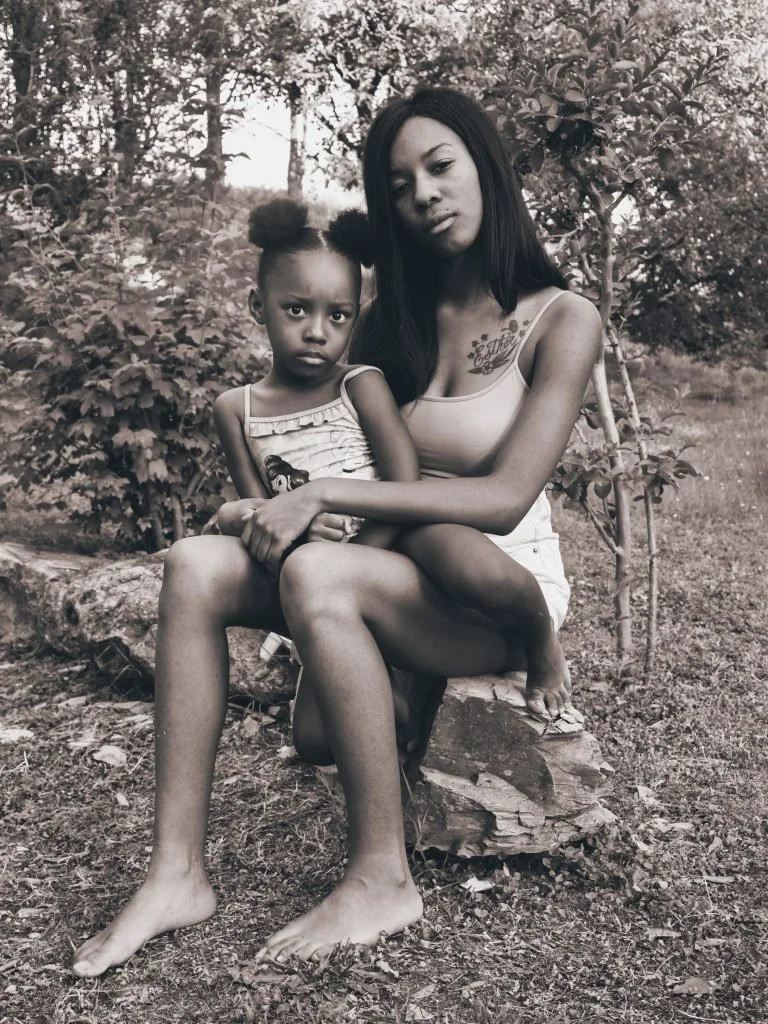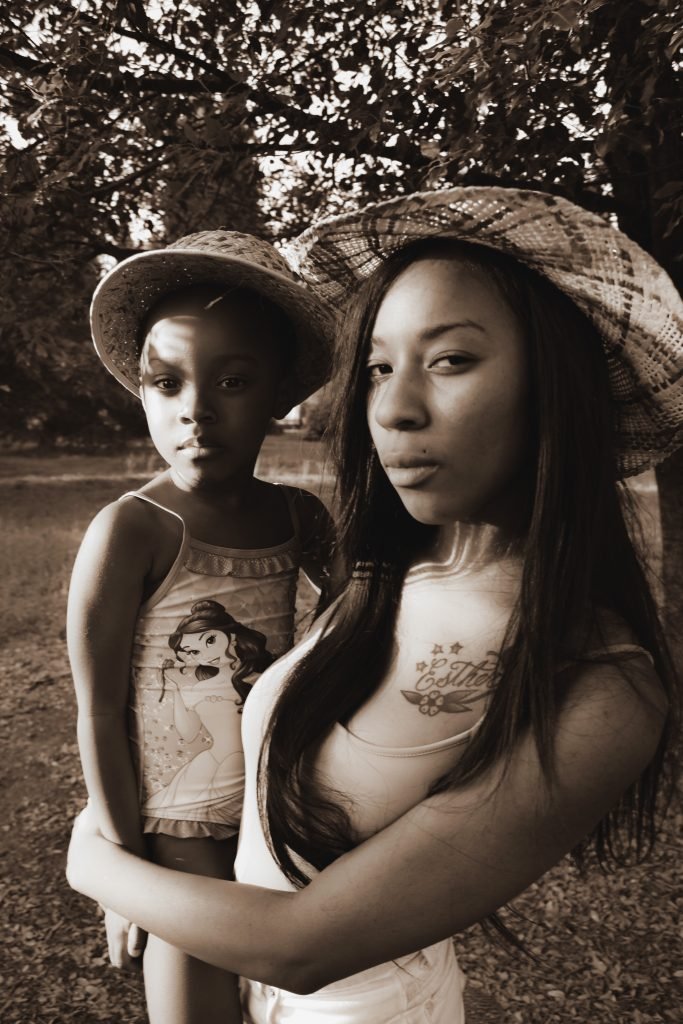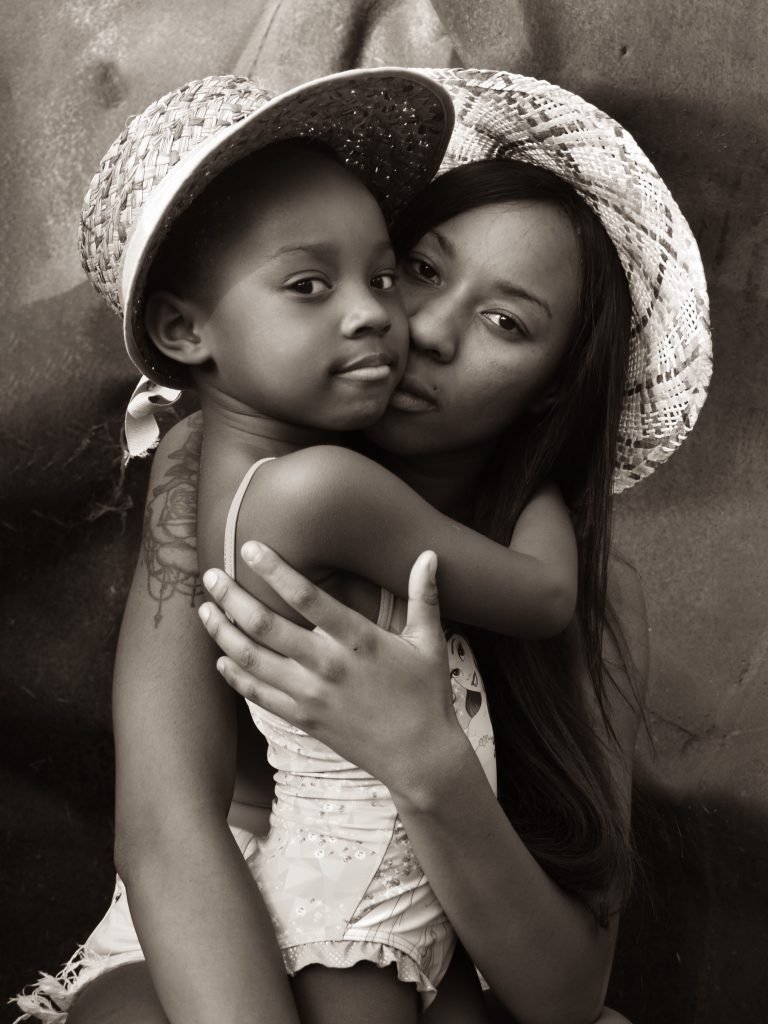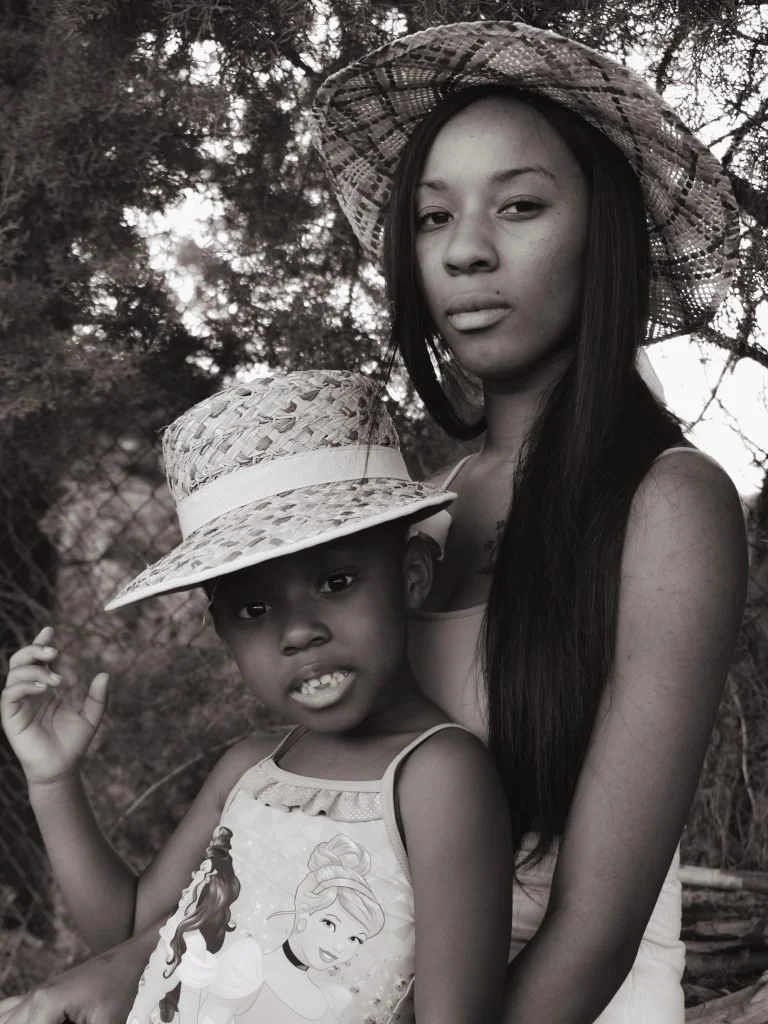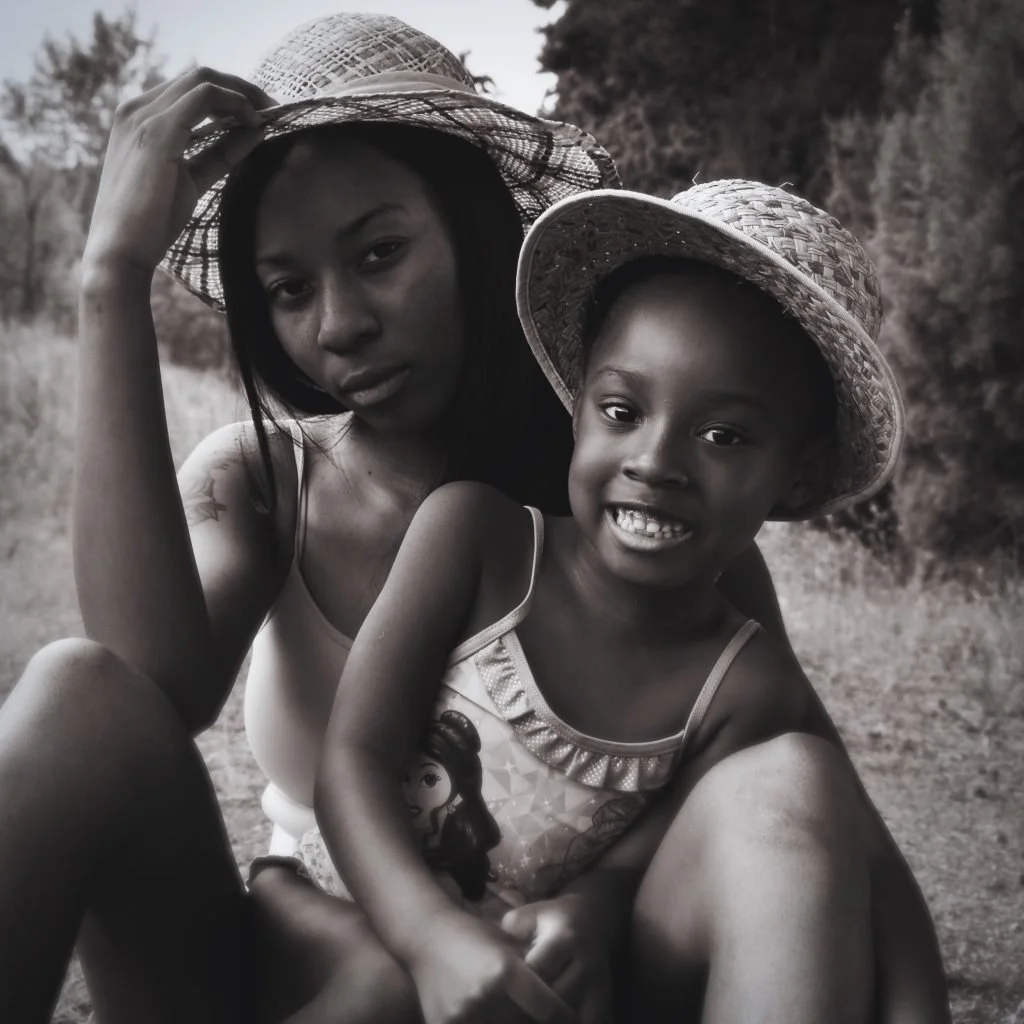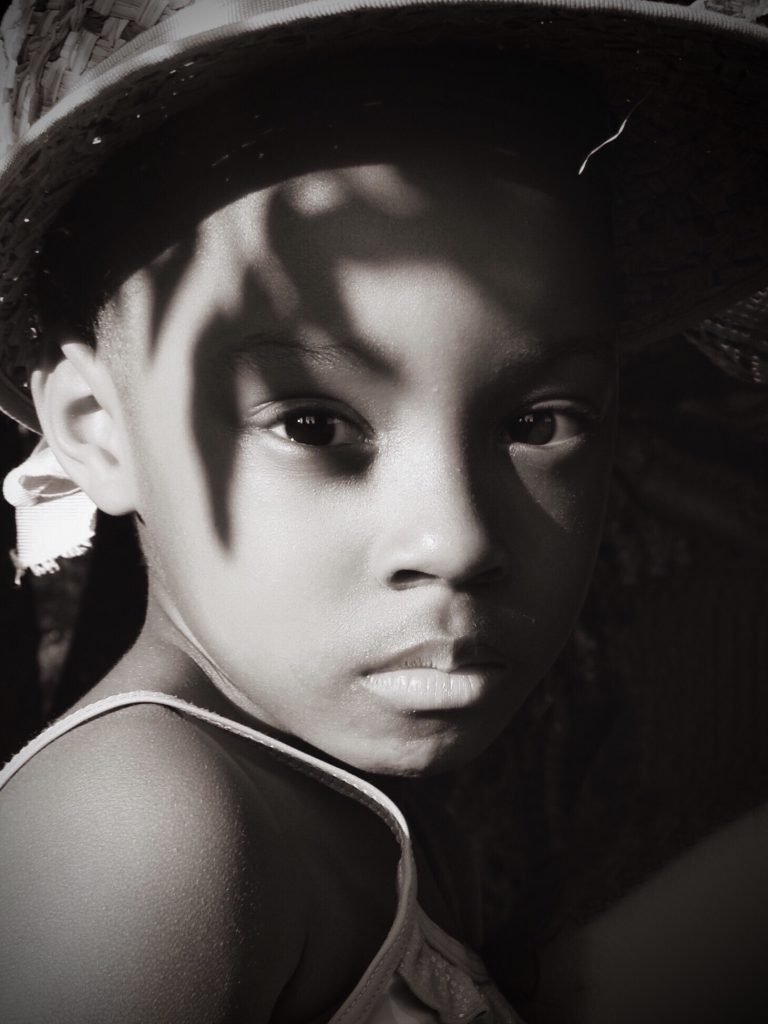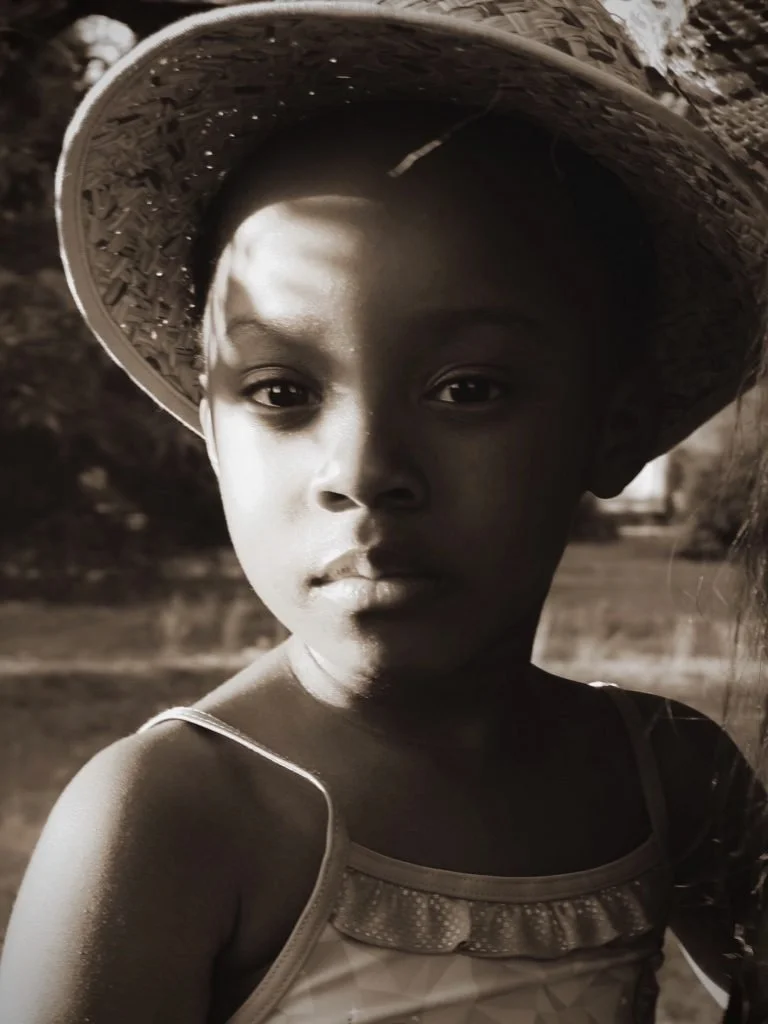ON CHILDREN (DEI BAMBINI)
“On children” is a collection of photos that belongs to a wider collection: “My voice”.
In this section of the project, Raymondhighlights the special relationship between a mother and herdaughter.
In a world full of discrimination, his photography raises voices against every form of injustice or domination.
In this collection, he’s reminding the importance of protecting children from jackals, when they are growing up, but at the same time, respecting their individuality.
The poem of Gibran here below highlights that the same love that warmed and protected the children in the childhood will be expressed by letting them go when they are adults, being close to them but respecting a healthy distance. A hymn to love, that expresses itself through protection and respect. The collection, starting with Esther in the arms of the mother, ends with 2 portraits of her by herself, who will be led by the life to build a new individual different from the parents.
The various shades of black and white are analogous to the many shades of maternal love.
"Dei bambini" è una raccolta di foto che appartiene a una raccolta più ampia: "La mia voce".
In questa sezione del progetto, Rayevidenzia la speciale relazione tra una madre e sua figlia. In unmondo pieno di discriminazioni, la sua fotografia ricordal’importanza di lottare contro ogni forma di ingiustizia opossesso.
In questa raccolta, si evidenzial'importanza di proteggere i bambini da un mondo aggressivo quandosono piccoli, ma allo stesso tempo l’importanza di rispettare laloro individualità quando saranno adulti.
La poesia di Gibran evidenzia che lo stesso amore che ha riscaldato e protetto i bambini durante l'infanzia, si trasformerà in un lasciandoli andare da adulti, standogli vicini ma rispettando una sana distanza. Un tributo a un amore che si esprime con protezione e rispetto. La collezione, che inizia con Esther tra le braccia della madre, termina con 2 ritratti della bambina, che sarà guidata, dalla vita, a costruire un nuovo individuo.
I diversi toni dei bianco-neri vanno a ricordare i diversi toni di uno stesso amore.
"On Children" by Khalil Gibran
"Your children are not your children.
They are the sons and daughters of Life's longing for itself.
They come through you but not from you,
And though they are with you yet they belong not to you.
You may give them your love but not your thoughts,
For they have their own thoughts.
You may house their bodies but not their souls,
For their souls dwell in the house of tomorrow,
Which you cannot visit, not even in your dreams.
You may strive to be like them,
But seek not to make them like you.
For life goes not backward nor tarries with yesterday.
You are the bows from which your children
As living arrows are sent forth.
The archer sees the mark upon the path of the infinite,
And He bends you with His might
That His arrows may go swift and far.
Let your bending in the archer's hand be for gladness;
For even as He loves the arrow that flies,
So he loves also the bow that is stable."
"I Vostri Figli", Khalil Gibran
"I vostri figli non sono i vostri figli. Sono i figli e le figlie della brama che la vita ha di sé. Essi non provengono da voi, ma attraverso di voi. E benché stiano con voi non vi appartengono. Potete dar loro il vostro amore ma non i vostri pensieri, poiché essi hanno i propri pensieri. Potete offrire rifugio ai loro corpi ma non alle loro anime, poiché le loro anime abitano la casa del domani che neppure in sogno potrete visitare. Potete sforzarvi di essere simili a loro, ma non cercate di renderli simili a voi. Poiché la vita procede e non s'attarda su ieri. Voi siete gli archi dai quali i vostri figli sono scoccati come frecce viventi. L'Arciere scruta il bersaglio sul sentiero dell'infinito, e con la sua forza vi piega e vi tende affinché le sue frecce vadano veloci e lontane. Fatevi tendere con gioia dalla mano dell'Arciere. Poiché come ama la freccia che scocca, così Egli ama l'arco che sta saldo."
See more in our section Art.
Photos by Ray Morrison
Models: Fatima Toure, Esther Toure


